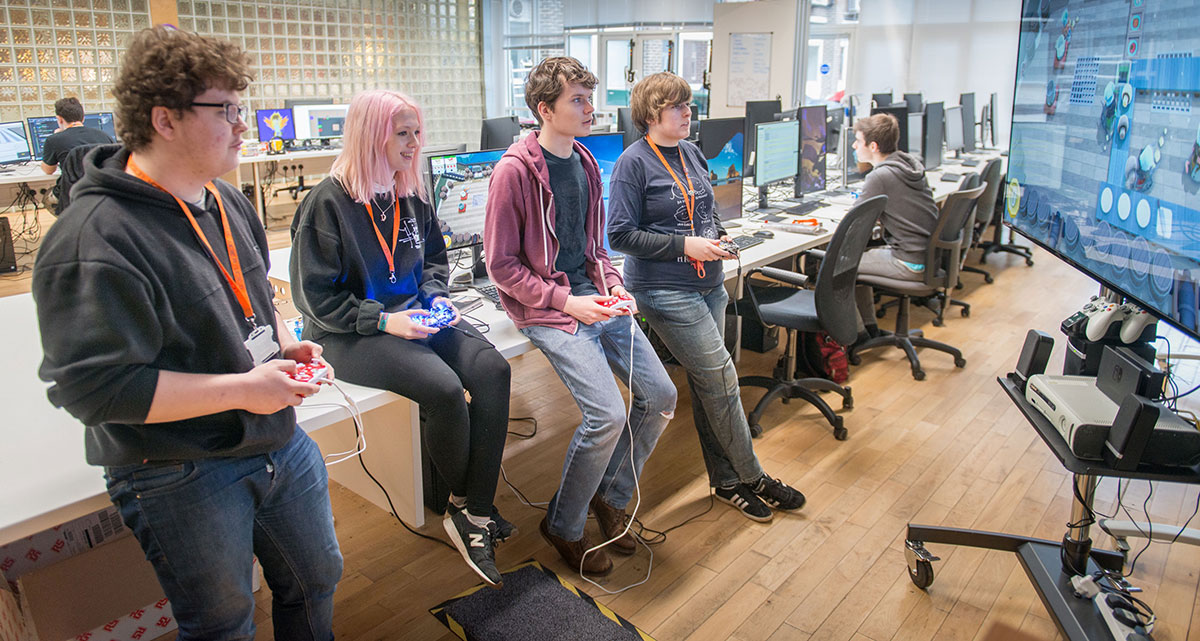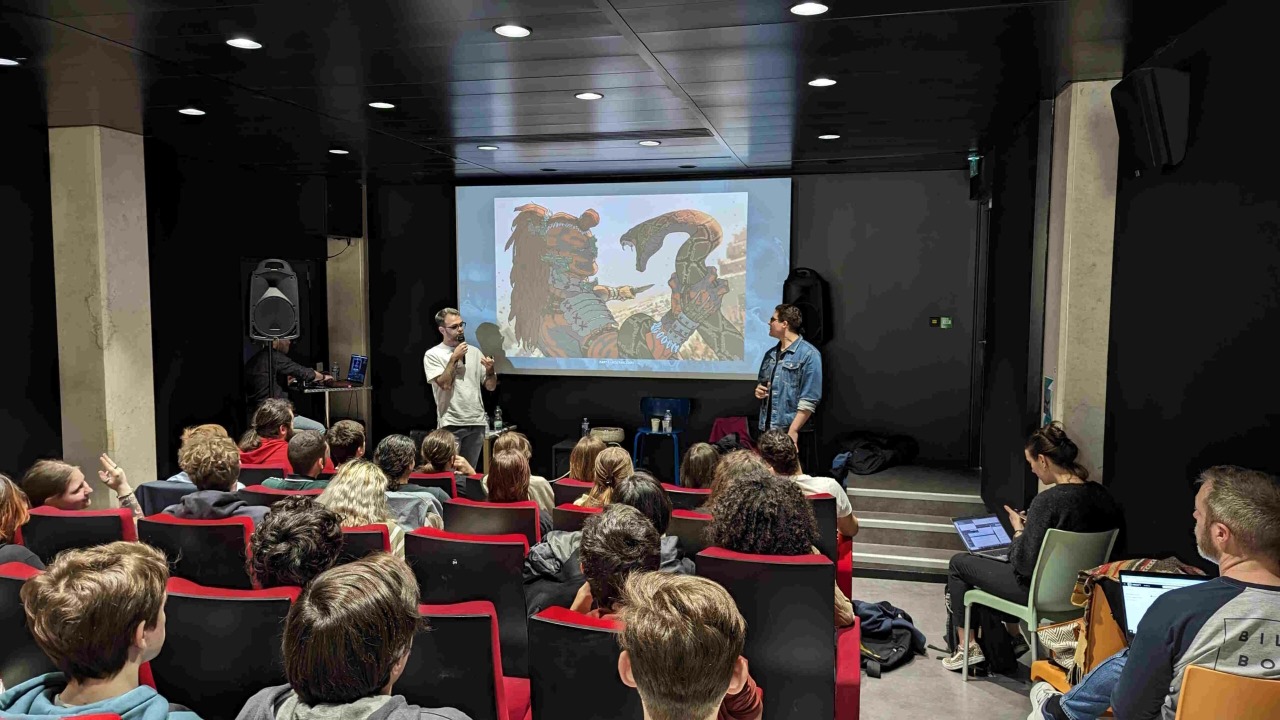Game development has evolved from a niche pursuit into one of the most dynamic and lucrative fields in the creative tech industry. Once confined to basement studios and a few pioneering companies, it's now a global force driving innovation in entertainment, storytelling, education, simulation, and beyond. With this growth, the demand for skilled developers, artists, writers, and producers has skyrocketed—making formal and informal education in game development more essential than ever.
Yet choosing the right course or university is no small feat. The spectrum of offerings is vast, ranging from comprehensive degree programs at top universities to specialized bootcamps and affordable online courses that can be completed from home. Some programs focus heavily on the technical side—coding, AI, and engine architecture—while others nurture the artistic soul, cultivating skills in narrative design, animation, or sound design. The best programs often combine both, offering interdisciplinary paths that reflect the collaborative nature of actual game studios.
This article aims to guide aspiring developers through the ever-growing jungle of options. We'll explore world-renowned universities offering game development degrees, highlight standout online courses for both beginners and professionals, and examine the emerging trends shaping the next generation of developers. Whether you're dreaming of joining a AAA studio, building your own indie hit, or just dipping your toes into interactive storytelling, there's a path for you—and this guide will help you find it.
What to Look for in a Game Development Program
Before diving into rankings and course names, it's worth defining what makes a game development program great. Spoiler: it’s not just about prestige. The right program will align with your personal goals, learning style, and creative vision.
First and foremost, curriculum depth is key. Does the program offer specialization tracks? Some students want to dive deep into engine-level programming and systems architecture, while others are drawn to level design, visual art, or writing. A well-rounded curriculum should provide a core understanding of game development as a whole, with flexibility to pursue focused skill sets.
Faculty expertise is equally crucial. Are the instructors seasoned professionals from the industry? Have they shipped titles or led teams? Look for programs where the instructors have real-world experience—not just academic theory.
Then there’s technology and infrastructure. Does the school have access to modern tools and industry-standard software like Unity, Unreal Engine, Maya, Blender, or FMOD? Are students exposed to collaborative development environments using tools like GitHub, Trello, or JIRA?
Pay close attention to alumni success stories. If a program regularly places students at companies like Naughty Dog, EA, Riot, or Ubisoft—or supports indie developers in launching successful Kickstarter games—it’s likely doing something right. Not every student ends up in AAA, but a track record of job placements or shipped games tells you a lot about a school’s reputation.
Internships and industry connections also make a massive difference. Universities partnered with studios or publishers often offer internship pipelines or collaborative projects, giving students their first real experience with deadlines, feedback loops, and cross-discipline teamwork.
And finally, student support and community. Is the learning environment inclusive and collaborative? Are there clubs, meetups, game jams, or mentorship programs? Game development is not a solo sport—being surrounded by peers who push and inspire you can transform your growth.
Top Game Development Universities in the United States
The United States is home to some of the most prestigious institutions for game development, many of which have strong ties to the industry and produce graduates who go on to shape the future of interactive media. These schools don’t just teach you how to build games—they immerse you in a studio-like environment where creativity, innovation, and teamwork thrive.
University of Southern California (USC)
USC’s Interactive Media & Games Division consistently ranks at the top. Its location in Los Angeles, near many AAA studios and entertainment companies, gives students unmatched networking opportunities. The program encourages a cross-disciplinary approach, blending design, narrative, art, and engineering. USC’s alumni list includes developers who’ve worked on God of War, Journey, and Uncharted. Facilities include motion capture studios, VR labs, and advanced prototyping spaces.
Carnegie Mellon University (CMU)
CMU’s Entertainment Technology Center (ETC) isn’t your typical tech school—it’s a project-based graduate program that’s been praised for its innovative fusion of art and engineering. ETC emphasizes collaboration, creative risk-taking, and a deep understanding of user experience. Students form interdisciplinary teams to build working games, AR/VR applications, and experimental media. Graduates frequently land positions at Valve, Blizzard, and even outside gaming in companies like Disney and Pixar.
University of Utah
Home to the Entertainment Arts & Engineering (EAE) program, Utah consistently ranks among the best. The curriculum blends computer science with digital media, making it ideal for aspiring technical designers or gameplay programmers. It offers both undergraduate and graduate tracks, and students are encouraged to create full games as capstone projects. EAE grads have made an impact at Microsoft, Epic Games, and many prominent indie studios.
University of Central Florida (UCF)
UCF’s Florida Interactive Entertainment Academy (FIEA) is a graduate-level game development school located in Orlando. With strong ties to EA Tiburon and other nearby studios, FIEA offers intensive training in 3D modeling, programming, production, and technical art. The focus here is practical—students graduate with polished portfolios and collaborative game projects. The studio-style environment mimics real industry pipelines.
Georgia Institute of Technology (Georgia Tech)
Georgia Tech’s BS in Computational Media is a unique hybrid degree combining computer science, digital art, and game design. While more theoretical than other programs, it offers a solid foundation in technical skills and encourages exploration of media theory, interactive storytelling, and algorithmic design. Students have access to cutting-edge labs, AR/VR projects, and tech-focused electives.
University of North Carolina at Chapel Hill
UNC’s game development track is nestled within its Computer Science department. This makes it a great choice for those more interested in the technical backbone of games—graphics engines, simulations, AI, and system design. Students can join research projects or game dev clubs that regularly participate in national and international competitions.
Massachusetts Institute of Technology (MIT)
Through its MIT Game Lab, the school offers a blend of hands-on creation and academic exploration of games as cultural, educational, and artistic media. Students collaborate with peers from fields like AI, psychology, and cognitive science. MIT encourages experimentation with new forms of play, including interactive fiction, serious games, and experimental mechanics.
Stanford University
While not known for a formal game development program, Stanford offers a rich interdisciplinary approach through its computer science, art, and digital media tracks. Students interested in experimental game design, AI, human-computer interaction, or augmented reality will find plenty of relevant coursework and research opportunities.
Leading Game Design Universities in Europe
Europe has long been a thriving hub for creativity, and its approach to game development education reflects a unique balance between artistic freedom and technical precision. While some institutions lean heavily on game theory, others are more industry-focused—offering real studio environments, access to game jams, and strong links with major publishers and developers across the continent.
University of Abertay Dundee (UK)
Abertay was the first university in the world to offer a degree specifically in game design, and it remains a European powerhouse for aspiring game creators. Located in Scotland, the university offers undergraduate and postgraduate programs in Game Design and Production, Computer Games Technology, and more. Students have access to the UK's largest PlayStation development lab outside of Sony, and the school regularly collaborates with the game industry on applied research and prototyping. The annual Dare Academy is a showcase of student innovation and a launching pad for careers.
University College London (UCL)
UCL’s game design programs stand out for their research-driven structure and integration with cutting-edge digital media theory. Students are encouraged to explore AI, procedural generation, VR, and serious games alongside traditional game production techniques. Its central London location means easy access to indie studios, publishers, and networking events in the UK's bustling game scene. UCL also places a strong emphasis on diversity, inclusive design, and cross-disciplinary collaboration—ideal for students who want to create games that challenge norms and break new ground.
DigiPen Institute of Technology (Spain)
Though better known for its U.S. campus, DigiPen’s European branch in Bilbao offers the same industry-respected programs in real-time interactive simulation, game design, and digital art. Courses are taught in English, and the school’s heavy emphasis on project-based learning has made it a top choice for international students across the continent. Many DigiPen students graduate with multiple complete games under their belts, along with experience working on multi-disciplinary teams—exactly what employers want.
Breda University of Applied Sciences (Netherlands)
This Dutch university has built a strong reputation for its International Game Architecture and Design program, which covers everything from game programming and design to art and production. Students specialize in areas like Visual Art, Design & Production, or Programming, and they’re required to work on professional-level projects with external game companies. Breda is known for preparing students for both indie development and AAA studio roles, and the school’s network includes companies like Guerrilla Games and Ubisoft.
Top Asian Universities for Game Development
Asia’s contribution to gaming—from Japan’s foundational role in console gaming to South Korea’s dominance in esports—is undeniable. In recent years, several Asian universities have stepped into the spotlight with programs that blend traditional academic rigor with creative, tech-savvy training in game development.
Nanyang Technological University (Singapore)
NTU has gained international recognition for its School of Art, Design and Media, where game development is offered as part of a broader Interactive Media curriculum. Students can study animation, design, user interaction, and virtual environments while gaining access to some of the best technology and labs in the region. Singapore’s thriving tech industry and investment in the gaming sector give students access to internships and employment opportunities with both local and global studios.
National University of Singapore (NUS)
One of Asia’s top academic institutions, NUS offers a Computer Science major with a Game Development Specialization. The program emphasizes the technical side of game creation—graphics, AI, networking, and simulation—while offering electives in user experience and interaction design. The school’s commitment to interdisciplinary learning allows students to blend engineering, business, and design in unique ways. It’s a strong choice for technically-minded students with entrepreneurial goals.
Tokyo University of Technology (Japan)
This university offers an intensive Game Course through its School of Media Science, focusing on CG production, programming, game planning, and sound. Situated in one of the world’s gaming capitals, students here are exposed to traditional Japanese game design philosophies while also learning modern tools and development pipelines. The faculty includes experienced developers and researchers, and students are encouraged to submit their work to international competitions and festivals.
University of Tokyo (Japan)
As one of Japan’s most prestigious universities, the University of Tokyo provides advanced courses and research opportunities in game development through its Graduate School of Information Science and Technology. While the program is research-heavy, students can specialize in Human-Computer Interaction, interactive simulations, and immersive virtual environments, often working alongside departments focused on robotics or AI. This is an ideal place for those interested in cutting-edge tech applied to game design.
Best Online Game Development Courses (Beginner to Advanced)
Not everyone can pack up and move to a university campus for years. That’s where online learning becomes a game-changer—especially in game development, where hands-on practice is more important than lectures. Today’s best online courses don’t just teach concepts—they get you building fast, using the same tools professionals use in the field.
Coursera
-
"Game Design and Development" (Michigan State University)
This is one of the most comprehensive beginner-to-intermediate level specializations available online. Spread across multiple courses, it covers storytelling, development, prototyping, and even monetization. It culminates in a final project where you build a playable game. It’s a great first step for anyone looking for structure with academic backing. -
"C++ Programming for Unreal Game Development" (University of Colorado)
Focused on Unreal Engine and C++, this course is for those who want a deeper technical dive. Unreal is widely used in AAA and high-fidelity indie games, and this course helps bridge the gap between basic scripting and engine-level programming.
edX
-
"Introduction to Game Design" (Harvard University)
This course blends game theory with hands-on design exercises. While it’s less about development tools and more about the why of games—what makes them fun, how they’re structured—it lays a powerful foundation for both designers and writers. -
"Professional Certificate in Unity Game Development" (UC San Diego)
Perfect for those who want a recognized credential while learning Unity. The certificate includes several focused courses, including C# scripting, 2D and 3D game development, and real-time multiplayer setup.
Udemy
-
"Unreal Engine C++ Developer: Learn C++ and Make Video Games"
One of Udemy’s highest-rated game dev courses. It goes deep into Unreal, teaching students to build solid gameplay systems using C++—great for those who want to work in big studios. -
"The Ultimate Guide to Game Development with Unity"
Another best-seller, this course is beginner-friendly but offers depth. It takes you through building real projects like a 2D platformer and a 3D survival game while teaching core Unity and C# skills.
FutureLearn
-
"Start Programming with Python for Games" (Raspberry Pi Foundation)
A great intro for kids or adults new to programming, this course walks you through using Python with simple games like Pong or text-based adventures. Good for absolute beginners who want to dip their toes before jumping into engines.
MIT OpenCourseWare
-
"Creating Video Games" (MIT Free Undergraduate Course)
If you want a university-style course without the tuition, this one’s gold. Students use Unity to design and build games in a collaborative studio setting. It includes readings, assignments, and even postmortem reflections.
Short-Term Game Design Bootcamps and Workshops
While universities and long-term online courses are excellent for deep, comprehensive training, not everyone has the time—or money—for a multi-year commitment. That’s where bootcamps and workshops come in: focused, intensive programs designed to get you job-ready or project-capable in weeks or months rather than years.
These are ideal for career-switchers, hobbyists looking to sharpen specific skills, or anyone wanting a practical, real-world taste of game development without getting bogged down in academia.
CG Spectrum
An industry-backed online school with a strong reputation, CG Spectrum offers part-time and full-time bootcamps in Game Design, Game Programming, and Game Art. Courses are led by working professionals from studios like Ubisoft, EA, and Blizzard. Each student gets a dedicated mentor, weekly critique sessions, and studio-style projects. The curriculum is aligned with current industry standards, covering everything from Unreal and Unity workflows to narrative systems and production pipelines.
Game Art Institute
This bootcamp focuses entirely on the art side of game creation—ideal for 3D modelers, character artists, and environment designers. Students work in tools like ZBrush, Maya, and Substance Painter, building a professional-quality portfolio. Their programs are online, but structured to mimic a real studio with deadlines, critiques, and collaborative feedback.
Futuregames (Sweden)
Technically a vocational school rather than a bootcamp, Futuregames offers short-term, industry-connected game development programs with an emphasis on hands-on, project-based learning. Many of the instructors are still active in the field, and students frequently work on real commercial games. Though based in Sweden, some programs are now available remotely and taught in English.
Unity Learn Pathways
Unity’s own official training hub offers “Pathways” programs—free, modular courses designed for absolute beginners to intermediate users. Tracks include junior programmer, artist, and game designer roles. Students earn badges and build projects that can be used in portfolios. While less intense than a formal bootcamp, Unity Learn is a fantastic self-paced resource.
Coursera Professional Tracks
Coursera offers curated learning paths that lead to professional certificates, often in partnership with major universities or companies. For game development, these might include tools like C#, Unity, AI systems, and even business-side lessons like monetization and publishing.
GameMaker Academy
For those who want to build 2D games quickly—especially retro or arcade-style projects—GameMaker Studio 2 is still a favorite. The official GameMaker Academy teaches everything from sprite animation to scripting and exporting your game for desktop or mobile. It’s especially great for solo devs and younger creators.
These short-term programs won’t make you a master overnight, but they’re ideal for boosting specific skills, getting feedback from professionals, and building your first few portfolio pieces quickly.
Emerging Trends in Game Development Education
Game development, like the industry itself, is constantly evolving. New technologies, workflows, and cultural shifts are shaping what—and how—students are taught. If you're choosing a program or course today, it's worth knowing what’s on the horizon.
VR and AR Integration
Virtual and augmented reality aren’t just gimmicks anymore. As Meta, Apple, and other tech giants invest billions into immersive platforms, game schools are catching on. Programs are now including dedicated VR/AR tracks or electives, teaching students how to build experiences for devices like the Meta Quest, Apple Vision Pro, and HTC Vive. This includes understanding spatial design, motion interaction, and optimization challenges.
Expect to see more schools building XR labs, offering projects in immersive storytelling, and encouraging experimentation in hybrid reality environments.
Indie Development and Self-Publishing
Where universities once focused on preparing students to work at big studios, many now embrace the indie path as a legitimate career route. Courses often include units on crowdfunding, marketing, and community building—key skills for creators hoping to publish their own games on platforms like itch.io, Steam, or Epic.
Some schools even help students form their own companies as part of the curriculum, guiding them through everything from pitch decks to early access release strategies.
Inclusive Storytelling and Game Diversity
There’s a growing recognition that the games industry needs broader perspectives—diverse characters, stories, and mechanics that reflect global experiences. Today’s programs are actively including narrative design, cultural sensitivity, and inclusive mechanics into their training. This is especially true in writing courses, but also in level design, character creation, and dialogue systems.
Many schools now encourage students to explore non-violent gameplay, queer narratives, mental health themes, and games for social change, reflecting a shift in both industry and player expectations.
Collaborative Remote Development
COVID-19 accelerated remote workflows across industries, and game development education is no exception. Many programs now teach remote collaboration tools (like GitHub, Trello, Discord, and Zoom) as part of their curriculum. Students are encouraged to form teams across borders, managing time zones, pipelines, and digital project handoffs—exactly the way modern studios work.
Even group capstone projects are now often built by fully remote teams, reflecting the new norm in the indie and startup space.
Procedural and AI-Driven Design
With AI tools like ChatGPT, Midjourney, and procedural generation systems becoming more accessible, courses are beginning to explore how these tools can support—not replace—creative game development. This includes designing systems where levels, enemies, or narratives are generated algorithmically, or using AI to assist with scripting and world-building.
Future-facing programs prepare students not just to use these tools, but to understand their ethical implications and integrate them creatively.
Choosing the Right Path for You
With so many incredible options—prestigious universities, project-based bootcamps, online certificates, and self-paced tutorials—how do you actually choose?
Start by thinking about your goals. Do you want to work at a AAA studio? Make indie games? Freelance as an artist or level designer? Each goal calls for a different kind of preparation.
If you're drawn to technical roles like programming, systems design, or tools engineering, prioritize programs with strong computer science foundations. Look for universities or online courses that teach C++, systems architecture, and debugging techniques.
If you're a creative, focusing on narrative design, animation, sound, or visual art, you might thrive in design-heavy programs that prioritize storytelling, world-building, and aesthetics. Here, mentorship, feedback, and portfolio creation matter more than code.
For those considering the indie route, focus on entrepreneurship, production pipelines, marketing, and monetization. Look for schools or courses that emphasize shipping real projects, not just learning theory.
Budget is another big factor. Prestigious universities can be expensive, but online programs or local vocational courses often offer excellent training for a fraction of the cost. And in game development, your portfolio often matters more than your diploma—so choose the path that lets you build and learn consistently, not necessarily the one with the fanciest name.
Finally, pay attention to learning style. Are you disciplined enough for self-paced learning? Or do you thrive with structure and feedback? Some people need deadlines and lectures; others prefer YouTube, Discord, and hands-on experimentation. There’s no wrong path—only the one that works best for you.
Whichever road you choose, remember this: every great developer started with a single step—taking a course, joining a jam, or opening an engine for the first time. Your journey begins exactly the same way. Start building.









